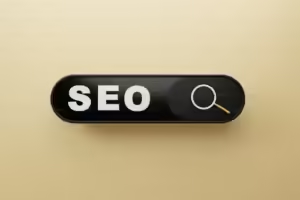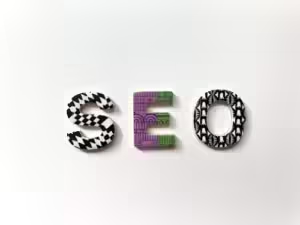In the dynamic world of digital marketing, SEO (Search Engine Optimization) plays a pivotal role in determining the success of your online presence. Understanding the distinction between on-page SEO and off-page SEO is essential for crafting a robust SEO strategy that attracts more organic visitors to your website. In this comprehensive SEO comparison, we will delve into the intricacies of on-page SEO and off-page SEO, exploring their unique elements and how they contribute to your overall SEO efforts.

What is On-Page SEO?
On-page SEO refers to the practice of optimizing individual web pages to rank higher and earn more relevant traffic in search engines. It involves various elements that you can control within your website to improve its search engine ranking and user experience.
Key Elements of On-Page SEO:
- Keyword Optimization: Incorporating relevant keywords naturally into your content, headings, meta descriptions, and URLs.
- Content Quality: Creating high-quality, valuable, and engaging content that meets the needs of your target audience.
- Title Tags and Meta Descriptions: Crafting compelling and keyword-rich title tags and meta descriptions to improve click-through rates (CTR) from search engine results pages (SERPs).
- Header Tags (H1, H2, H3, etc.): Using header tags to structure your content and make it easier for search engines and users to understand the hierarchy of information.
- URL Structure: Creating clean, descriptive, and keyword-friendly URLs.
- Internal Linking: Linking to other relevant pages within your website to enhance navigation and distribute link equity.
- Image Optimization: Using descriptive file names, alt text, and appropriate image sizes to improve load times and accessibility.
- Mobile-Friendliness: Ensuring your website is responsive and provides a seamless experience on all devices.
- Page Speed: Optimizing your website’s loading speed to improve user experience and search engine rankings.
What is Off-Page SEO?
On the other hand, off-page SEO involves activities performed outside your website’s boundaries to improve its visibility and authority in search engines. It focuses on building a website’s reputation and trustworthiness through external factors.
Key Elements of Off-Page SEO:
- Backlink Building: Acquiring high-quality backlinks from authoritative websites to signal trust and credibility to search engines.
- Social Media Engagement: Promoting your content on social media platforms to increase brand awareness and drive traffic to your website.
- Guest Blogging: Writing and publishing articles on other reputable websites to build backlinks and reach a broader audience.
- Influencer Outreach: Collaborating with influencers in your niche to gain exposure and credibility.
- Online Reviews and Ratings: Encouraging satisfied customers to leave positive reviews on platforms like Google My Business, Yelp, and industry-specific review sites.
- Brand Mentions: Getting your brand mentioned on other websites, even without a direct link, to increase brand visibility and recognition.
- Forum Participation: Engaging in relevant online communities and forums to establish authority and drive traffic to your site.
On-Page SEO vs. Off-Page SEO: Which is More Important?
Both on-page SEO and off-page SEO are crucial components of a successful SEO strategy. They complement each other and should be used in tandem to achieve the best results.
- Control and Immediate Impact: On-page SEO gives you more control and can often result in quicker improvements in your search rankings. By optimizing your website’s content and structure, you provide a better user experience and make it easier for search engines to understand and index your site.
- Authority and Trust: Off-page SEO, while less controllable, is vital for building your website’s authority and trustworthiness. High-quality backlinks and positive brand mentions signal to search engines that your site is a reliable source of information, which can significantly boost your rankings over time.

Conclusion
In conclusion, both on-page SEO and off-page SEO are essential for a comprehensive and effective SEO strategy. By focusing on optimizing your website’s content and structure (on-page SEO) and building a strong online reputation through external efforts (off-page SEO), you can enhance your search engine rankings and attract more organic visitors to your site. Remember, the key to SEO success lies in balancing these two aspects and continuously adapting to the ever-changing search engine algorithms.
Start implementing these strategies today to see a significant improvement in your website’s visibility and organic traffic. For more in-depth tips and insights, stay tuned to our blog and join the conversation on social media.
By effectively leveraging on-page and off-page SEO, you’ll be well on your way to dominating the search engine results pages and driving sustainable, long-term growth for your online presence.





Pingback: Strategies to Succeed as a Freelance Copywriting in 2024 - Nova LabX